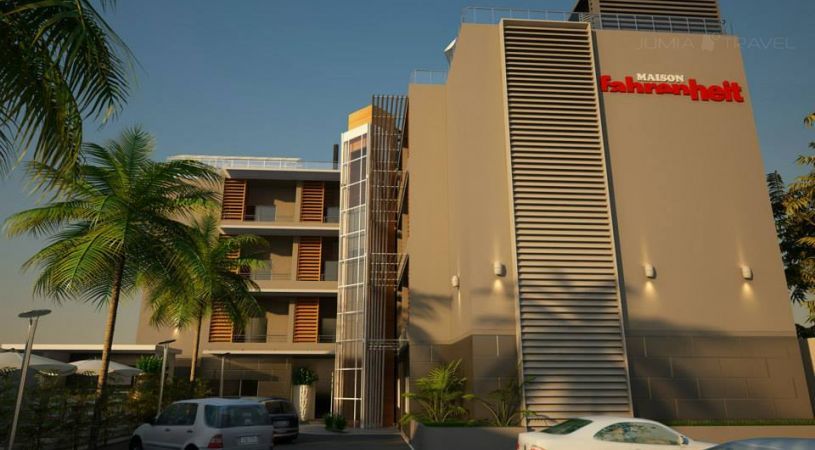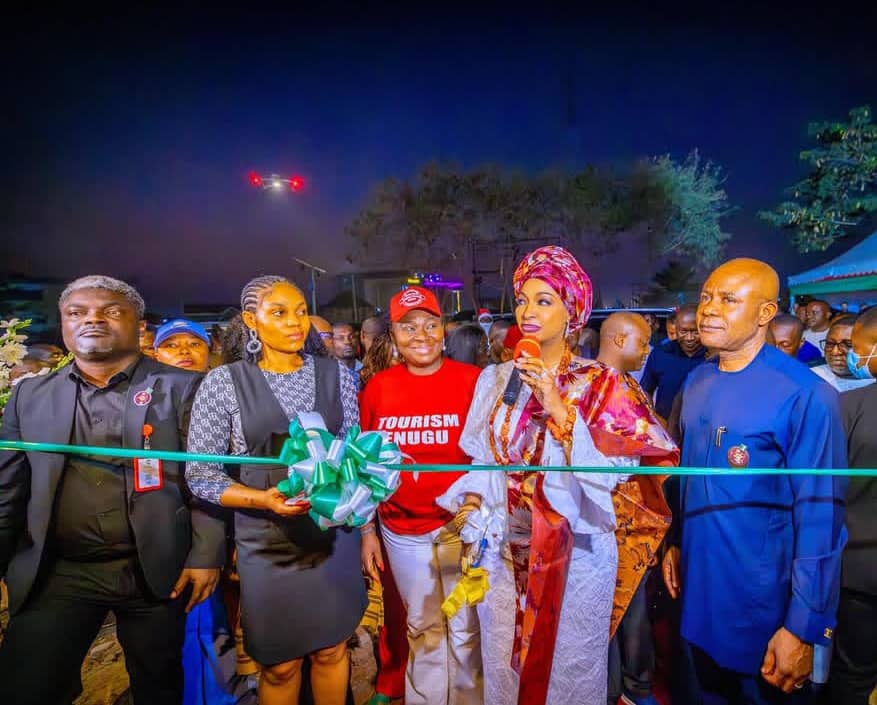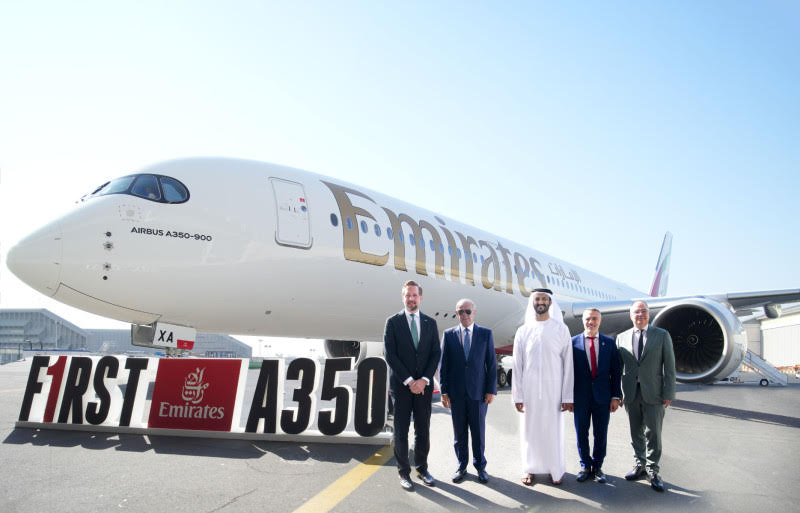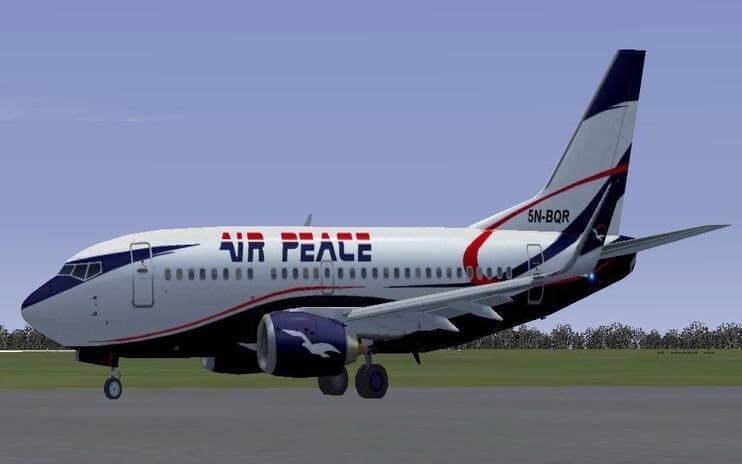Travel/Tourism
Nigeria Contributes 49.6% to West African Hotel Pipeline

By Modupe Gbadeyanka
West Africa has been at the heart of the continent’s growth and economic transformation in recent years. Notwithstanding the sharp slowdown experienced in 2016 and 2017, the region’s economy is expected to rebound in 2017 onwards.
Commodity-based economies, like Nigeria, are slowly recovering from the fall in oil prices and oil production, while countries like Côte d’Ivoire, Mali, and Senegal have shown economic resilience and sustained growth.
As many of the countries continue to stabilize – politically and economically – the region will be better integrated from a local and international context. This increased integration raises the need for quality travel and accommodation infrastructure.
The growth of the hotel sector is an important indicator of how well a market is developing its travel infrastructure, and the indicators for West Africa are mixed.
According to W Hospitality Group’s 2017 Hotel Chains Pipeline report, West Africa has a pipeline of 114 hotels and 20,790 rooms, accounting for 42 percent of the Sub-Saharan African hotel pipeline.
However, of these hotel deals signed and planned, only approximately 9,875 rooms, or 48 percent have moved to construction.
In addition, projects in the region have longer than average development periods at approximately six years, compared to the two- to three-year development program that is usually planned.
Some of the reasons for these delays are high capital investment required, lack of access to adequate financing options, limited access to raw materials, high construction and material costs, a heavy reliance on importation, inadequate technical capacity to manage the development program, and other barriers to entry.
Of the hotel pipeline for West Africa, Nigeria contributes 49.6 percent or more than 10,000 hotel rooms (in 61 hotels). Nigeria is also the top market in Africa for planned rooms.
The other substantial markets in West Africa include Cape Verde with 11 hotels and 3,478 rooms, and Senegal with 14 hotels and 2,164 rooms. These three markets contribute a total of 15,955 hotel rooms, or 77 percent of the West African hotel pipeline.
Approximately 57 percent of the pipeline in these countries have moved to site, however some of these projects have been stalled for some time. In a country, like Nigeria, this can be significant.
For instance, 40 percent of Nigeria’s pipeline was signed between 2009 and 2014, and as the chart above illustrates, a large portion of these projects is still in the “planning” phase. In Senegal only approximately 44 percent of the deals signed have moved to site.
Although the pipeline of hotels to the sub-region is encouraging and indicative of strong investor interest, the low completion rate of projects could be troubling for the development of the hotel sector.
It is also difficult for the hotel chains whose expansion plans in these markets rely on partnerships with local and foreign investors to develop these hotels. All the major global hotel chains have strong expansion plans to increase their operating presence on the continent, and in West Africa.
The growth strategy for these hotel chains have traditionally relied on their development teams signing deals for new build hotels, primarily with their flagship brands, with local owners.
However, more chains are adopting creative expansion strategies, such as conversions and rebranding of existing properties, acquisition of existing local hotel operators, effecting growth through the franchise model, or developing owned hotels first.
Senior representatives from major hotel groups such as Hilton, Carlson Rezidor and Mangalis, and other key hotel experts will be discussing growth strategies in the ever-changing West African economic environment at the upcoming West Africa Property Investment (WAPI) Summit to held on November 28 & 29 at the Eko Hotel & Suites, Lagos Nigeria.
Hilton recently announced a plan to support the conversion and rebranding of 100 existing hotels through its Hilton Africa Growth Initiative, by committing $50 million to supporting these conversions.
Commenting ahead of the conference, Mike Collini, Vice President Development Sub-Saharan Africa, Hilton, remarked on the opportunities presented by the inadequate hotel supply.
He said, “To overcome this we are looking at rolling our focused service brands in key markets with a focus on our Hilton Garden Inn product. We are also pioneering the use of modular construction with a new Hilton Garden Inn in Accra, which is a fast and cost-effective build model for owners and developers.”
Andrew McLachlan, Carlson Rezidor’s Senior Vice President Africa & Indian Ocean for Development, said in a direct comment to Estate Intel, “Today we have 17 hotels open or under development in the region and in our new 5-year development strategy we have identified five Tier 1 Cities in West Africa (Lagos, Abuja, Accra, Abidjan and Dakar) where we see scaled growth opportunities…across the luxury to midscale hotel segment.”
McLachlan also commented on the model of conversion of existing hotels, saying that the group sees an opportunity to adopt this model to reposition the hotel under its management, particularly in cases where the existing hotel may not be performing to its full potential.
Newcomer and regional hotel chain, Mangalis Hospitality Group, intends to increase its presence in West Africa, in the next five years. Wessam Oshaka, in a statement to Estate Intel reiterated the group’s “ambition to operate at least 13 hotels by 2020 in West Africa.” The group had initially focused development on owned hotels in core markets such as Cote d’Ivoire and Senegal, but the second phase of development will now focus on management agreements, resulting in a portfolio that will comprise 75 percent owned hotels and 25 percent managed hotels.
Oshaka explains that, “Africa as we know, suffers from a lack of properties responding to the needs of modern travellers.
“The region comes with its challenges especially in terms of financing, logistics and skilled workforce. Taking all these factors into account, we adopted the most suitable approach for a healthy growth plan.”
The hotel sector discussions at WAPI will expand on these topics, highlighting the success cases and the more challenging markets. The discussions will also centre on key indicators of hotel performance in West African markets.
Travel/Tourism
Musawa, Governor Mba Commission Enugu Christmas Village

By Dipo Olowookere
The Enugu Christmas Village has been commissioned by the Minister of Arts, Tourism, Culture, and the Creative Economy, Ms Hanatu Musawa; and the Governor of Enugu State, Mr Peter Mba.
This development officially kicked off the holiday season in the state, giving residents and others from across Nigeria and outside the opportunity to relax in an atmosphere of love, positioning Enugu as a key destination for cultural and holiday tourism.
Facilitated by Omu Resort, a leading tourism promoter in Africa, the Enugu Christmas Village is set to become the heartbeat of holiday celebrations in the state.
The company has already organised a 25-day festival at the village designed to attract residents, visitors, and dignitaries from across the region.
With its vibrant atmosphere and festive attractions, the Enugu Christmas Village boasts an array of attractions such as a waterpark, roller skating, archery, amusement rides, and much more.
At its centre is a breathtaking display of 500,000 Christmas lights, illuminating the village in a magical glow that promises to captivate visitors of all ages.
The festival goes beyond the lights and rides, offering a rich tapestry of events that celebrate the state’s cultural heritage.
Highlights include Afrobeat Concert, Praise Night, Highlife Concert Street Carnival, Cultural Parade and a Grand Fireworks Show.
One of the most anticipated moments is the Santa Street Storm, where over 100 Santa Claus figures riding tricycles will parade through the streets, distributing gifts to orphanages and the less privileged, spreading joy and goodwill.
Running from December 7 to December 31, 2024, the Enugu Christmas Festival is more than just a celebration of the holiday season. It underscores the state’s cultural vibrancy and its potential as a leading tourist destination.
The festival offers a unique opportunity for families and friends to come together, celebrate, and unwind in a festive atmosphere. It is also expected to fosters unity and showcases the rich cultural heritage of Enugu State, while promoting arts, tourism, and community well-being.
Travel/Tourism
Emirates Unveils Airbus A350-900 in Dubai

By Aduragbemi Omiyale
One of the leading airline operators, Emirates Airline, has officially unveiled its first Airbus A350-900 at an exclusive event showcase in Dubai attended by aerospace partners, government officials and dignitaries, members of the media, as well as aviation enthusiasts.
The Emirates A350 features three spacious cabin classes, accommodating 312 passengers in 32 next-generation Business Class lie-flat seats, 21 Premium Economy seats and 259 generously pitched Economy Class seats.
The latest onboard products reflect the airline’s commitment to delivering a premium passenger experience while optimising operational efficiency. The Emirates A350 is the first new aircraft type to join Emirates’ fleet since 2008.
Apart from its newly delivered A350, Emirates operates two other aircraft types around the world to 140 destinations – the widebody Boeing 777 aircraft and the iconic ‘double decker’ Airbus A380 aircraft.
The A350’s introduction will enable Emirates to expand into new destinations globally, including mid-sized airports unsuited for larger aircraft. The Emirates A350 will be delivered in two versions – one for regional routes and one for ultra long-haul routes.
The Emirates A350 takes technology to another level. Customers can now adjust their electric window blinds at the touch of a button.
The aerBlade dual blind system will feature in Business and Premium Economy Class offering two shaded options, and the aerBlade single blind systems will make a debut in Economy Class, with all blinds showing the Emirates Ghaf tree motif when closed.
Business Class on the Emirates A350 will feature 32 luxurious leather ‘S Lounge seats’, inspired by the Mercedes S Class for an exceptional travel experience. The A350 aircraft will feature brand new additions of wireless charging on the side cocktail table in Business Class, and in-seat lighting controls with 5 streams of light. The 1-2-1 seat configuration in the A350 Business Class ensures a very private, exclusive experience.
Speaking at the event, the chairman of Emirates Airline, Mr Ahmed bin Saeed Al Maktoum, said, “Today is an exciting milestone for Emirates as we showcase our first A350 and usher in a new era for our fleet and network growth.
“This aircraft sets the stage for Emirates to spread its wings farther by offering added range, efficiency and flexibility to our network, enabling us to meet customer demand in new markets and unlock new opportunities in the cities that we serve.
“Onboard, our updated interiors and seating configurations will help us deliver a more elevated and comfortable experience to travellers across every cabin class.
“The 65 Emirates A350s joining our fleet in the coming years fit into the airline’s broader plans to support our visionary leadership’s Dubai’s D33 Strategy, which will transform the city into a pivotal hub in the global economy by expanding its connectivity and reach.”
Travel/Tourism
Air Peace Employees Undergo Training at Boeing Global Learning Institute

By Aduragbemi Omiyale
Some employees of Air Peace have upgraded their aviation safety skills at a training course organised by Boeing through the Boeing Global Learning Institute (BGLI) in collaboration with Cranfield University, United Kingdom as part of a shared commitment to shaping the future of aviation leadership.
Over the years, Air Peace has recognized that a deep, unwavering commitment to safety is key to its continued success.
The programme is aimed at building upon that vision, enabling executives to lead with confidence, manage risks effectively, and create high-performing teams that prioritize safety at every level.
In the five-day in-person training, all the executives and others in the various departments of Air Peace were taught advanced safety leadership skills and gained practical tools to implement the new knowledge.
The Head of Aerospace at Cranfield University, Prof Graham Braithwaite, said, “This collaboration ensured that the training directly addresses the challenges Air Peace faces, culminating in real-world capstone projects that would have a lasting impact.”
Reinforcing this position, the Lecturer for Organisational Resilience and Change at Cranfield School of Management, Fabian Steinmann, who was excited at the great progress Air Peace made over the years, said that they are happy to learn and share knowledge and find ways to strengthen the system, making it robust and flexible to adapt to the ever-changing environment.
“Safety is at the heart of everything we do at Cranfield so the privilege we have is that we travelled around the world, picked up the good practices, learned more about the culture and the operation in various countries so we’re here to facilitate that exchange with Nigeria and Air Peace to see how we share some of the good practices and lessons learned from all around the world and translate them into their operation.”
Also, the Senior Organisational Consultant and Programme Manager at Boeing Global Learning Institute, Harry Magui, said, “The Boeing company has long recognised the importance of supporting continuous learning of our aviation partners.
“To that end, the Boeing Global Learning Institute designs and delivers numerous learning programmes to both emerging and established leaders of our partners.
“These efforts aim to develop leadership, business, and technical skills so that our partners can improve their business processes, increase operational efficiency and enable leaders to strengthen their teams to ultimately grow their business.’
Alluding to the great work Air Peace has done in making safety a pre-condition rather than just a priority, Magui said, “We’re here to partner with our great partner, Air Peace who have been phenomenal in advancing the Aviation Industry in Nigeria, so we are here to support them to harness more opportunities in the future with the Advanced Leadership in Safety Excellence Training for all its top leadership within the organization.”
The Safety Manager at Air Peace, Captain Godfrey Ogbogu, said, “This class is quite essential and we’re lucky to have our resource persons impact knowledge on us. It is a well-structured training, especially for Air Peace because of where we are now and where we hope to go in the future.
“The whole essence of this class is to reinforce what we know before and be exposed to other avenues of learning. The aviation industry is ever-changing and dynamic, and Air Peace has to be abreast of such developments.”
-

 Feature/OPED5 years ago
Feature/OPED5 years agoDavos was Different this year
-
Travel/Tourism8 years ago
Lagos Seals Western Lodge Hotel In Ikorodu
-

 Showbiz2 years ago
Showbiz2 years agoEstranged Lover Releases Videos of Empress Njamah Bathing
-

 Banking6 years ago
Banking6 years agoSort Codes of GTBank Branches in Nigeria
-

 Economy2 years ago
Economy2 years agoSubsidy Removal: CNG at N130 Per Litre Cheaper Than Petrol—IPMAN
-

 Banking2 years ago
Banking2 years agoFirst Bank Announces Planned Downtime
-

 Sports2 years ago
Sports2 years agoHighest Paid Nigerian Footballer – How Much Do Nigerian Footballers Earn
-

 Technology4 years ago
Technology4 years agoHow To Link Your MTN, Airtel, Glo, 9mobile Lines to NIN














